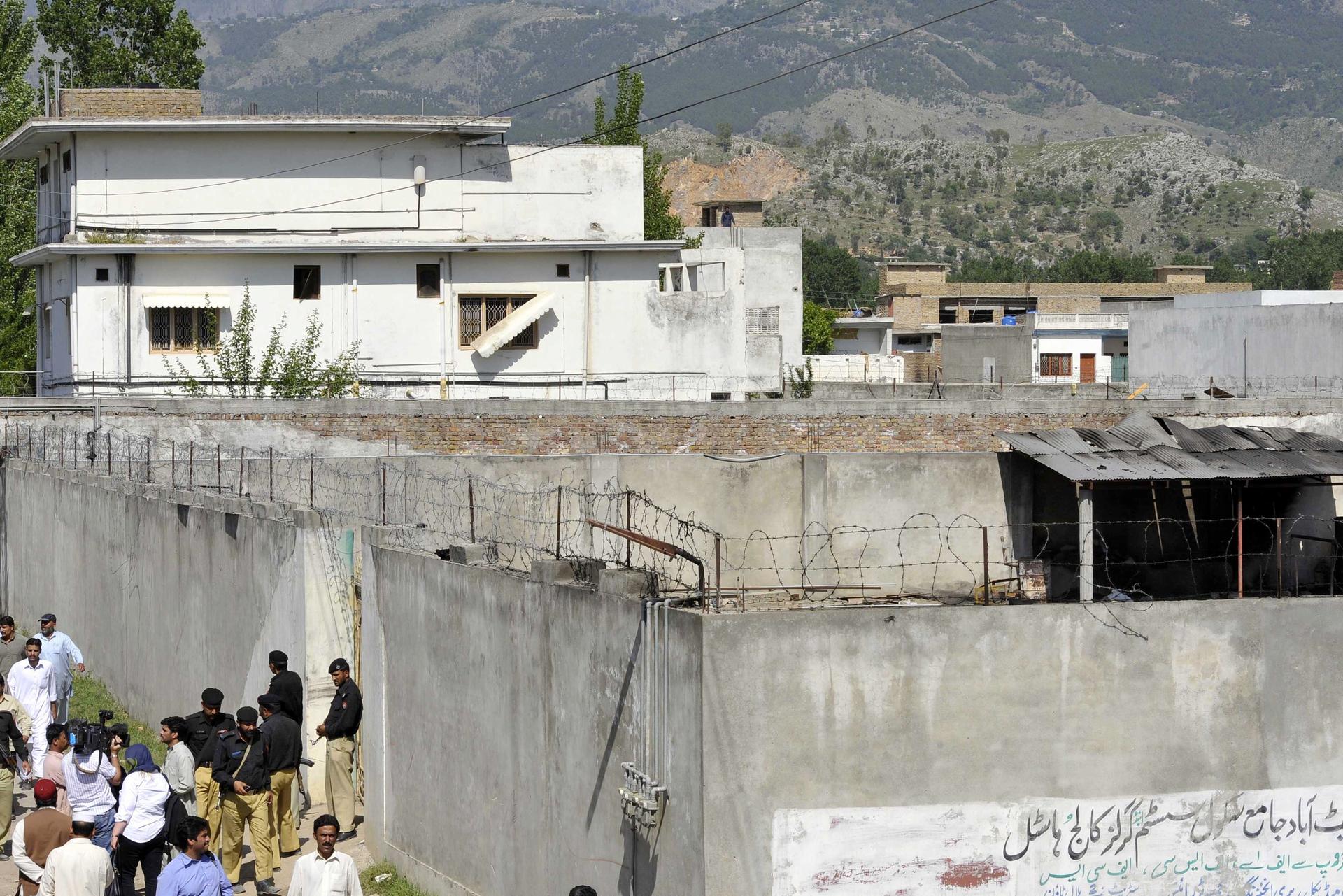Pakistan says it did not shelter Osama bin Laden (UPDATES) (VIDEO)
Pakistani police and media personnel gather outside a burnt compound at the hideout of Al-Qaeda leader Osama bin Laden following his death by US Special Forces in a ground operation in Abbottabad on May 3, 2011. The United States warned it would probe how bin Laden managed to live in undetected luxury in Pakistan, as gripping details emerged about the U.S. Navy SEAL raid that killed the Al Qaeda leader.
Pakistan's president has officially denied suggestions that his government sheltered Osama bin Laden, but Asif Ali Zardari admitted that his security forces were left out of a U.S. operation to kill the Al Qaeda chief.
In a separate development, the White House has revealed that bin Laden was not armed when Navy SEALs stormed his compound in the military garrison town of Abbottabad, although he did resist before he was shot, Reuters reports.
Spokesman Jay Carney said Tuesday that bin Laden's wife "rushed the U.S. assaulter" and was shot in the leg but not killed, contrary to what a White House official said on Monday. Resistance did not require a firearm, he said quizzically, without giving further details.
U.S. forces faced a firefight throughout the 40-minute raid. "We expected a great deal of resistance and were met with a great deal of resistance. There were many other people who were armed in the compound," Carney said.
The revelation that bin Laden had holed up in a luxury compound for up to six years prompted U.S. lawmakers to demand a review of the billions in aid money that Washington gives to nuclear-armed Pakistan.
Islamabad was kept in the dark about the raid until after all U.S. aircraft were out of Pakistani airspace, according to Reuters, a reflection of how strained U.S.-Pakistani relations have become.
Zardari, in an opinion piece in The Washington Post — his first formal response to questions about how the world's most-wanted militant was able to live so comfortably for so long and so close to Islamabad — stressed that a decade of cooperation with the United States had led to the elimination of a "threat to the civilized world."
"Some in the U.S. press have suggested that Pakistan lacked vitality in its pursuit of terrorism, or worse yet that we were disingenuous and actually protected the terrorists we claimed to be pursuing," Zardari wrote in an opinion piece in the Washington Post, adding that his country was perhaps the greatest victim of terrorism. "Such baseless speculation may make exciting cable news, but it doesn't reflect fact."
In the story headlines "Pakistan did its part," Zardari wrote that Islamabad helped to identify an Al Qaeda courier who U.S. officials said helped lead them to bin Laden.
That courier, a diplomatic source has told CNN, was none other than Abu Ahmad al-Kuwaiti, who was reportedly close to 9/11 architect Khalid Sheikh Mohammed, also a Kuwaiti.
CNN reports: "U.S. officials have said that when the identity of the courier — who they have not named — was established in 2007 the U.S. began a path to the house in Abbottabad, Pakistan, where the al Qaeda leader was living."
Carney, meanwhile, said the killing of bin Laden on Sunday was not likely to affect the U.S. timetable for bringing American troops out of Afghanistan, with a drawdown scheduled to start in July.
